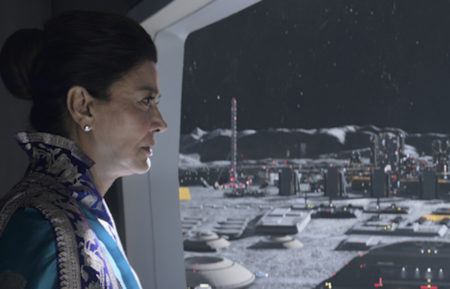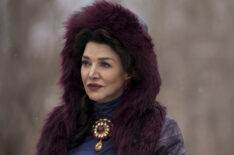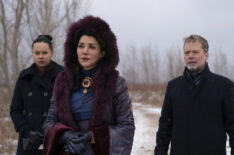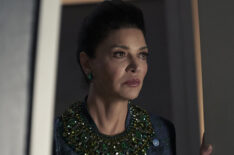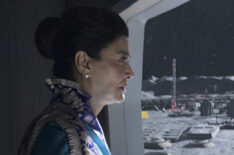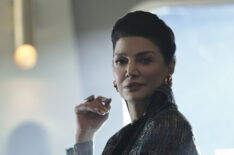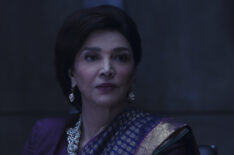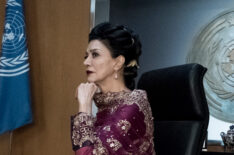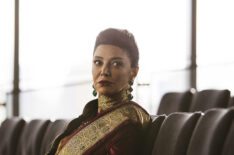Shohreh Aghdashloo
Credits

The PenguinStream
Actor
Nadia Maroni
Series
2024

DamselStream
Voice
Dragon
Movie
2024

Man and Witch: The Dance of a Thousand StepsStream
Actor
The Wisewoman
Movie
2024

RenfieldStream
Actor
Bellafrancesca Lobo
Movie
2023

Kung Fu Panda: The Dragon KnightStream
Voice
Forouzan
Series
2022

ArcaneStream
Actor
Series
2021

Run Sweetheart RunStream
Actor
First Lady
Movie
2020

The Cuban
Actor
Bano Ayoub
Movie
2019

A Simple Wedding
Actor
Ziba Husseini
Movie
2018

A Simple Wedding
Executive Producer
Movie
2018

Marvel's The PunisherStream
Actor
Farah
Series
2017

Intent to Destroy
Self
Movie
2017

Star Trek BeyondStream
Actor
Commodore Paris
Movie
2016

The PromiseStream
Actor
Marta Boghosian
Movie
2016

Window Horses
Voice
Mehrnaz
Movie
2016

The ExpanseStream
Actor
Chrisjen Avasarala
Series
2015

Last Knights
Actor
Maria
Movie
2015

Septembers of Shiraz
Actor
Habibeh
Movie
2015

q
Guest
Show
2014

ScorpionStream
Guest Star
Dr. Cassandra Davis
Series
2014

BelieveStream
Guest Star
Series
2014

Rosewater
Actor
Moloojoon
Movie
2014

The Social
Guest
Show
2013

Percy Jackson: Sea of MonstersStream
Voice
Oracle
Movie
2013

Home & Family
Guest
Talk
2012

ElementaryStream
Guest Star
Liliane Bellerose
Series
2012

The Mob Doctor
Guest Star
Show
2012

The Odd Life of Timothy GreenStream
Actor
Adoption Agency Employee
Movie
2012

GrimmStream
Guest Star
Stefania Vaduva Popescu
Series
2011

PortlandiaStream
Guest Star
Series
2011

In NorthWood
Actor
Dr. Lofton
Movie
2011

Iranium
Narrator
Movie
2011

For Neda
Narrator
Show
2010

FlashForwardStream
Guest Star
Nhadra Udaya
Series
2009

House of SaddamStream
Actor
Sajida Khairallah Talfah
Miniseries
2008

The Sisterhood of the Traveling Pants 2Stream
Actor
Prof. Nasrin Mehani
Movie
2008

La Maison de Saddam
Actor
Movie
2008

The Stoning of Soraya M.
Actor
Zahra
Movie
2008

Lyons & Bailes Reel Talk
Guest
Show
2007

The Better Show
Guest
Show
2007

Smith
Guest Star
Show
2006

X-Men: The Last StandStream
Actor
Dr. Kavita Rao
Movie
2006

American Dreamz
Actor
Nazneen Riza
Movie
2006

The Lake HouseStream
Actor
Dr. Anna Klyczynski
Movie
2006

The Nativity Story
Actor
Elizabeth
Movie
2006

BonesStream
Guest Star
Azita Vaziri
Series
2005

Grey's AnatomyStream
Guest Star
Series
2005

The Late Late Show With Craig Ferguson
Guest
Talk
2005

Babak & Friends: A First Norooz
Voice
Farah
Movie
2005

The Exorcism of Emily Rose
Actor
Dr. Adani
Movie
2005

HouseStream
Guest Star
Afsoun Hamidi
Series
2004

Tavis Smiley
Guest
Talk
2004

NCISStream
Guest Star
Mariam Bawali
Series
2003

House of Sand and FogStream
Actor
Nadi Behrani
Movie
2003

24Stream
Actor
Dina Araz
Series
2001

24Stream
Guest Star
Dina Araz
Series
2001

America So Beautiful
Actor
Exiled actress
Movie
2001

Maryam
Actor
Mrs. Homa Armin
Movie
2000

Law & Order: Special Victims UnitStream
Guest Star
Detective Sunny Qadri
Series
1999

Surviving Paradise
Actor
Pari
Movie
1999

Will & GraceStream
Guest Star
Pam
Series
1998

ERStream
Guest Star
Riza Kardatay
Series
1994

The SimpsonsStream
Guest Voice
Mina
Series
1989

The Guests of Hotel Astoria
Actor
Pori Karemnia
Movie
1989

Gozaresh
Actor
Movie
1977

Shatranj-e baad
Actor
Movie
1976

Good Morning America
Guest
News
1975
News aboutShohreh Aghdashloo

‘The Wheel of Time’ Trailer: Moiraine & Rand Face Deadly Ultimatum & More Season 3 Updates (VIDEO)
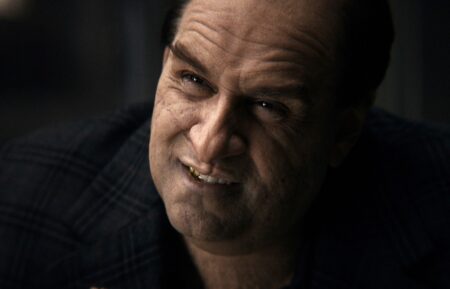
HBO Unveils ‘The Penguin’ Fan Events Around New York City — Everything We Know So Far
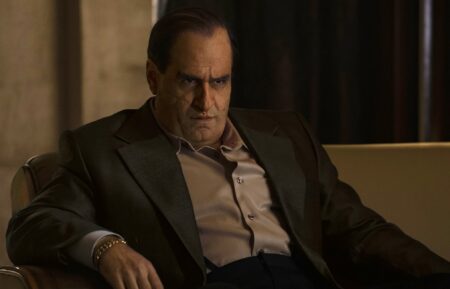
‘The Penguin’ Teaser: Colin Farrell’s ‘Batman’ Villain Rises in the Gotham Ranks (VIDEO)

Preview
How Will ‘Archer’ Handle New Management in Season 13?
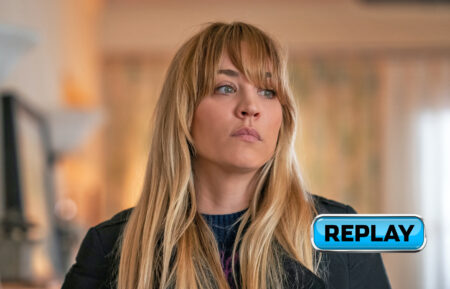
Can’t Miss Episode of the Week: ‘The Flight Attendant’ Delivers an Emotional Gut-Punch
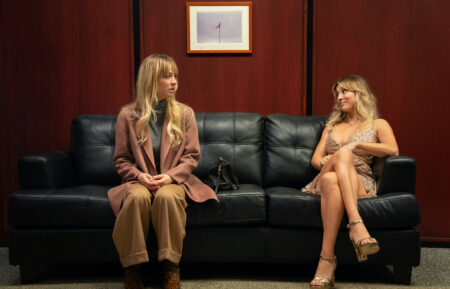
Review
Review: ‘The Flight Attendant’ Season 2 Does Better With Sobriety Than Spycraft

Opinion
Bidding Farewell to ‘The Expanse,’ One of TV’s Science Fiction Greats
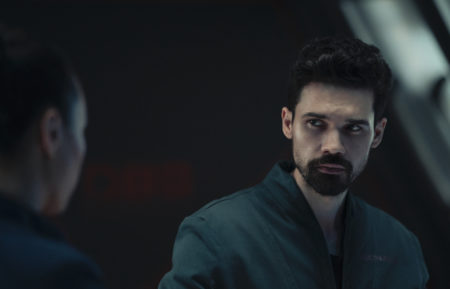
10 of the Most Memorable Moments from ‘The Expanse’
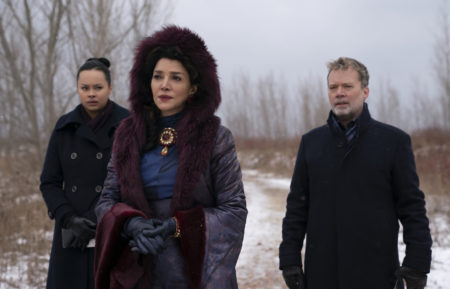
Comic-Con
‘The Expanse’ Sets Season 6 Premiere Date, Plus Get a Sneak Peek (VIDEO)
